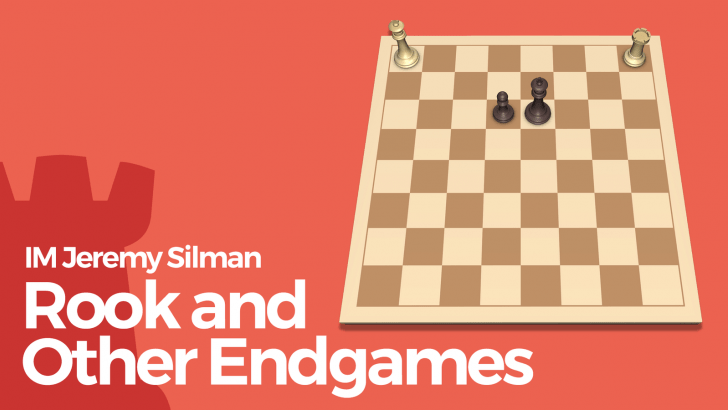Rook and Other Endgames
Get ready for some endgame training!
Would you like to improve your endgame play? Then this is the course for you! "Rook and Other Endgames" covers rook endings with some minor piece and queen endings included. Improve your endgame knowledge with IM Silman today!
Here is what you will learn:
- Learn key rook endgame strategies!
- Practice rook endgame tactics!
- Learn how rooks interact with other pieces in the ending!
"Congrats Chess.com for this amazing product." - Chess.com member pawnsacrifice101
"I like this course. Good examples, clear explanations." - Chess.com member PetrBacak82
